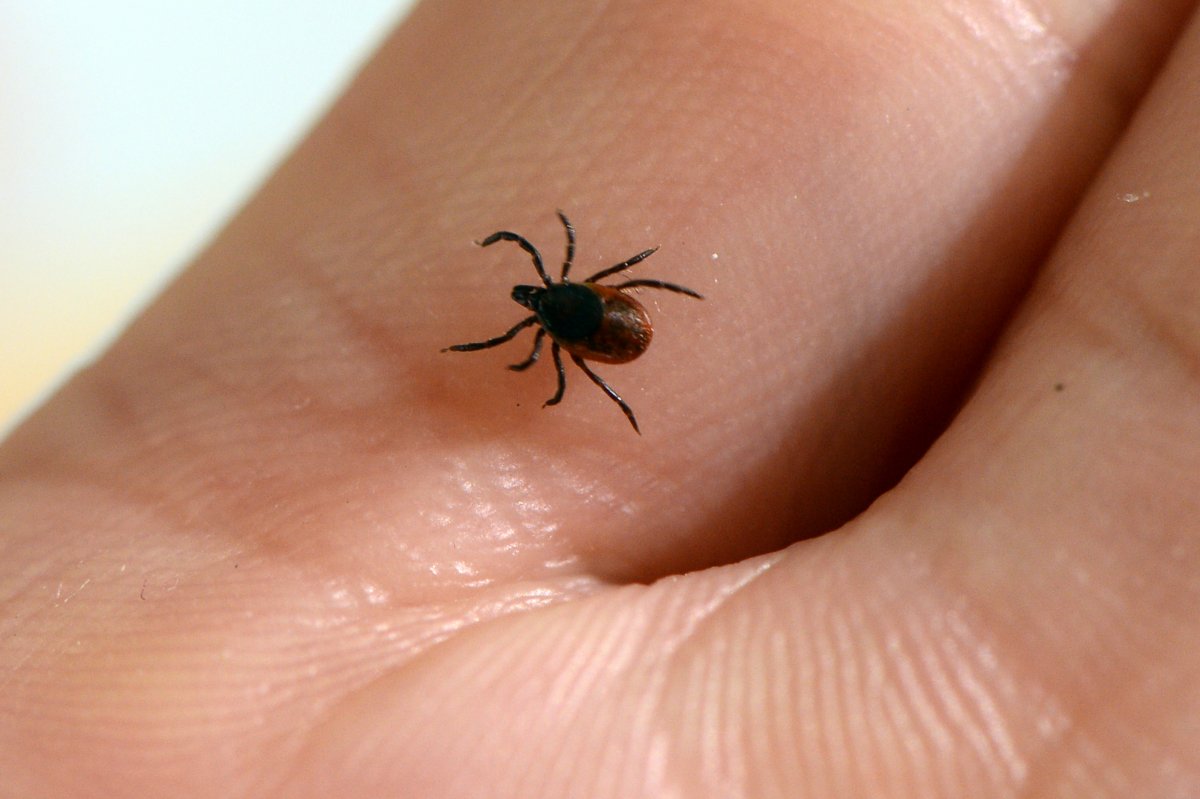It was May 2013 when I was diagnosed with "the summer flu." I was bedridden with fevers, chills, and body aches. My hands, feet, and face started tingling, and I could no longer turn my head. It was my boss who first suggested I might have Lyme disease. A long-time resident of Martha's Vineyard, she knew something I didn't—the Vineyard is infested with ticks. Even still, I struggled to find a doctor who would treat me.
My health was eventually restored with a course of antibiotics. A year later, my hands and arms throbbed, followed by electric pain through my body and brain a year after that. I lost my ability to read, forgot how to get home from work, and every night, I journaled details of my life—desperate to remember who I was. I was in fierce denial that it was Lyme-related. According to mainstream doctors, I had been cured.
I was 26 years old when I had my first appointment with a Lyme specialist. The nurse asked how I was going to get through this, and I saw one way forward: leverage my passion for storytelling to create a documentary about Lyme. I needed a reason to live that was bigger than myself—to help others avoid this experience. The nurse connected me to another filmmaker, also diagnosed with Lyme—Winslow Crane-Murdoch—and we began co-directing The Quiet Epidemic.
According to the Centers for Disease Control and Prevention (CDC), nearly 500,000 people are diagnosed and treated with Lyme each year in the U.S. Even with treatment, 10-20 percent experience long-lasting, debilitating symptoms. The true scale remains unknown, due to the inaccuracy of the Lyme diagnostic and the stealth nature of disease transmission—Lyme can be transmitted in utero and microscopic ticks anesthetize the skin when they bite. Lyme can also be misdiagnosed as autoimmune diseases, psychiatric disorders, and even heart complications.

Lyme costs the U.S. an estimated $1 billion annually. Chronic Lyme patients are going bankrupt, suffering from job loss, and experiencing high rates of suicide. The history of Lyme has been plagued with controversy—a National Institutes of Health (NIH) official once referred to patients as "Lyme loonies." Given the widespread suffering and economic burden, we were shocked to discover Lyme diagnostics and treatments have not advanced since the 1990s. Due to a lack of research, the mainstream medical community resorts to telling people it's in their heads.
Although long COVID is now widely recognized, we must remember it was initially dismissed. Myalgic encephalomyelitis/chronic fatigue syndrome (ME/CFS) is another debilitating, multisystemic illness that was neglected for decades, which is finally gaining recognition due to a study funded by the NIH. Our health agencies have demonstrated their ability to move quickly, there just needs to be the will.
In June 2023, the National Academy of Sciences, Engineering, and Medicine hosted a conference to explore "chronic illnesses that appear to arise from infectious diseases," including long COVID, ME/CFS, multiple sclerosis, and chronic Lyme. Not long after, the CDC listed Lyme disease alongside illnesses "linked to chronic symptoms." Following decades of espousing that chronic Lyme does not exist, this recognition is a first step. Now they must actively educate the public and medical community.
Over a decade has passed since the last congressional hearing on Lyme disease. In that time, approximately 5 million people contracted Lyme disease, about 750,000 have chronic, debilitating symptoms, and care has not improved. It's been 18 years since NIH funded a clinical trial for Lyme patients with chronic symptoms, and still, clinicians have no recommended treatment for these patients. Beyond this, more than 20 pathogens have been identified in ticks—five have been identified in New York City parks—and NIH has not funded a single controlled clinical treatment trial for overlapping tick-borne infections. People are becoming infected with multiple diseases from a tick bite, and our government has not equipped clinicians with tools to treat these complex conditions.
Our health agencies must re-examine their priorities and how they allocate funding. It should not take decades to understand an illness that impacts millions of Americans—especially when the highest incidence is in children, and it remains unknown how many babies are born with Lyme disease. In 2022, the Tick-Borne Disease Working Group issued a report with specific recommendations to Congress regarding Lyme and tick-borne diseases. Our health agencies and Congress know about this problem—and they need to act on it.
Our health agencies have failed to properly respond to this public health crisis for 50 years. We're witnessing what happens when nothing is done. It's time to involve our nation's decision-makers on Capitol Hill. Like the subjects who bravely shared their stories in The Quiet Epidemic, too many people are becoming physically, mentally, and financially debilitated because they played in the yard, or took their dog for a walk. It's high time that Congress intervenes and changes the course of history for the United States and beyond. The world is following our lead.
Lindsay Keys is co-director of The Quiet Epidemic.
The views expressed in this article are the writer's own.
Uncommon Knowledge
Newsweek is committed to challenging conventional wisdom and finding connections in the search for common ground.
Newsweek is committed to challenging conventional wisdom and finding connections in the search for common ground.
About the writer
To read how Newsweek uses AI as a newsroom tool, Click here.






